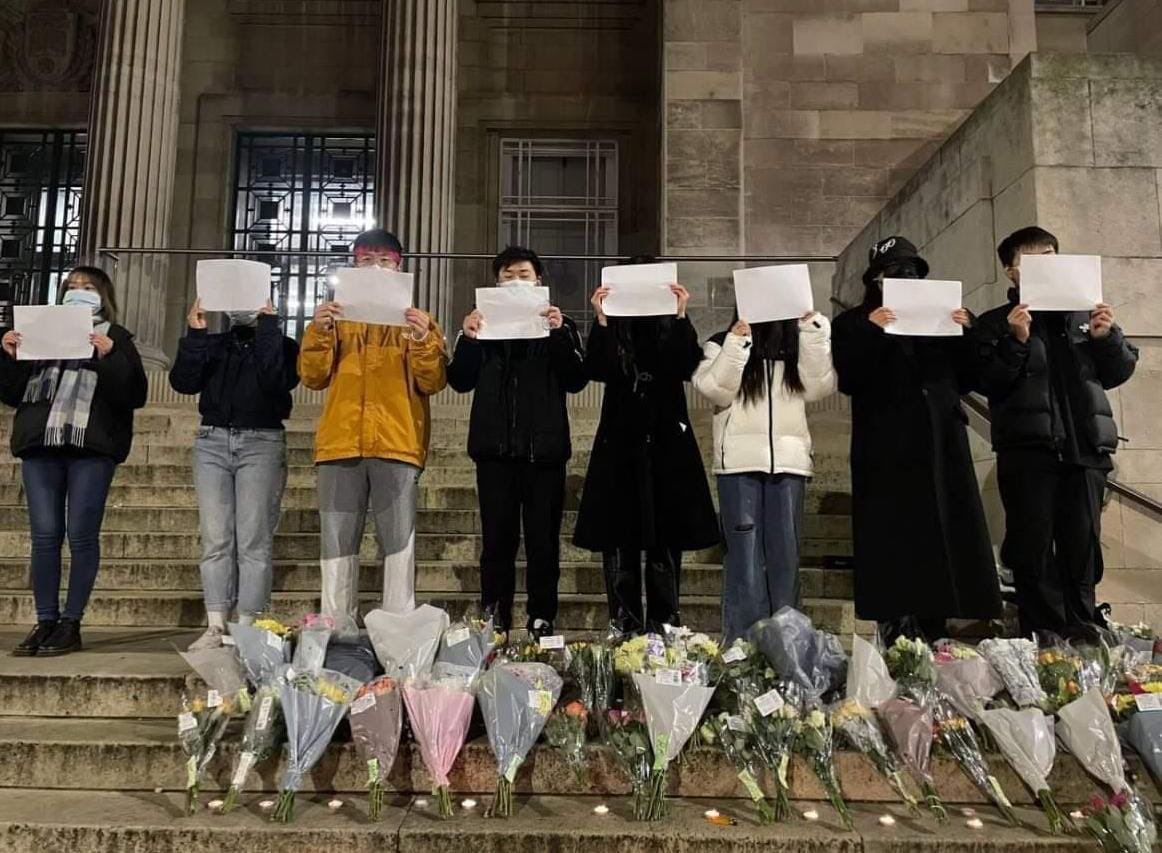Chinese students along with others demonstrated against the Chinese government’s corona policy. Universities are sending them home in the hope of stifling the protests.
Students in Leeds demonstrate their solidarity with Chinese protests. (Photo: @ZhouFengSuo | Twitter)
Universities in Beijing and Guangdong have sent students home after a weekend of demonstrations, sometimes days away from travel. The official reason is to protect them from covid, but the measure may also dampen protests, notes US media channel PBS. ‘Chinese leaders are wary of universities, where a lot of activism took place, such as during the Tiananmen Square protests.’
In news reports on the demonstrations in China against the president and his coronavirus policy a lot of international media attention is being paid to the 1989 student protest. The current protests are probably the biggest since that year.
The student protest at that time took place at Tiananmen Square. A particularly famous photo shows how one student blocked a procession of tanks. That protest resulted in a bloody crackdown and it is forbidden in China to mention it or commemorate it.
Fire
The major protests in recent days ensued from a fire in an apartment building in which ten residents died. The demonstrators believe that the residents were unable to escape because of the coronavirus restrictions.
Many cities have been subjected to lockdowns lasting many months. In addition, local officials sometimes take even tougher measures on their own initiative, probably to avoid being held accountable for an outbreak.
That is the case on university campuses and even the government seems to consider this a problem. If the campus is not regarded as a big coronavirus risk, the policy conducted by the officials must not go too far, the Chinese government has announced.
But the demonstrators want even more freedom, chanting that Chinese president Xi Jinping should resign, according to Al Jazeera. Such statements are unprecedented.
White paper
The symbol of the protests is a sheet of white paper, illustrating that the demonstrators are not allowed to say anything. Freedom of speech is banned in China. The censorship is so extreme that even the names of cities where demonstrators have taken to the streets, such as Shanghai, may not be mentioned at present on Chinese social media.
To stifle protests, universities are sending students home, says the American news agency Associated Press. After all, if students are no longer on the campus, they cannot gather together.
The protests are reminiscent of those in Iran, where many students have been rebelling for months against the totalitarian regime, with the motto ‘Woman, life, freedom’. The trigger for that was the death of a young woman who was arrested by the morality police. Many famous Iranians have expressed their support, including the captain of the Iranian football team at the World Cup in Qatar.
HOP, Bas Belleman | Translation: Taalcentrum-VU
Do you have a question or comment about this article?
redactie@hogeronderwijspersbureau.nl


Comments are closed.